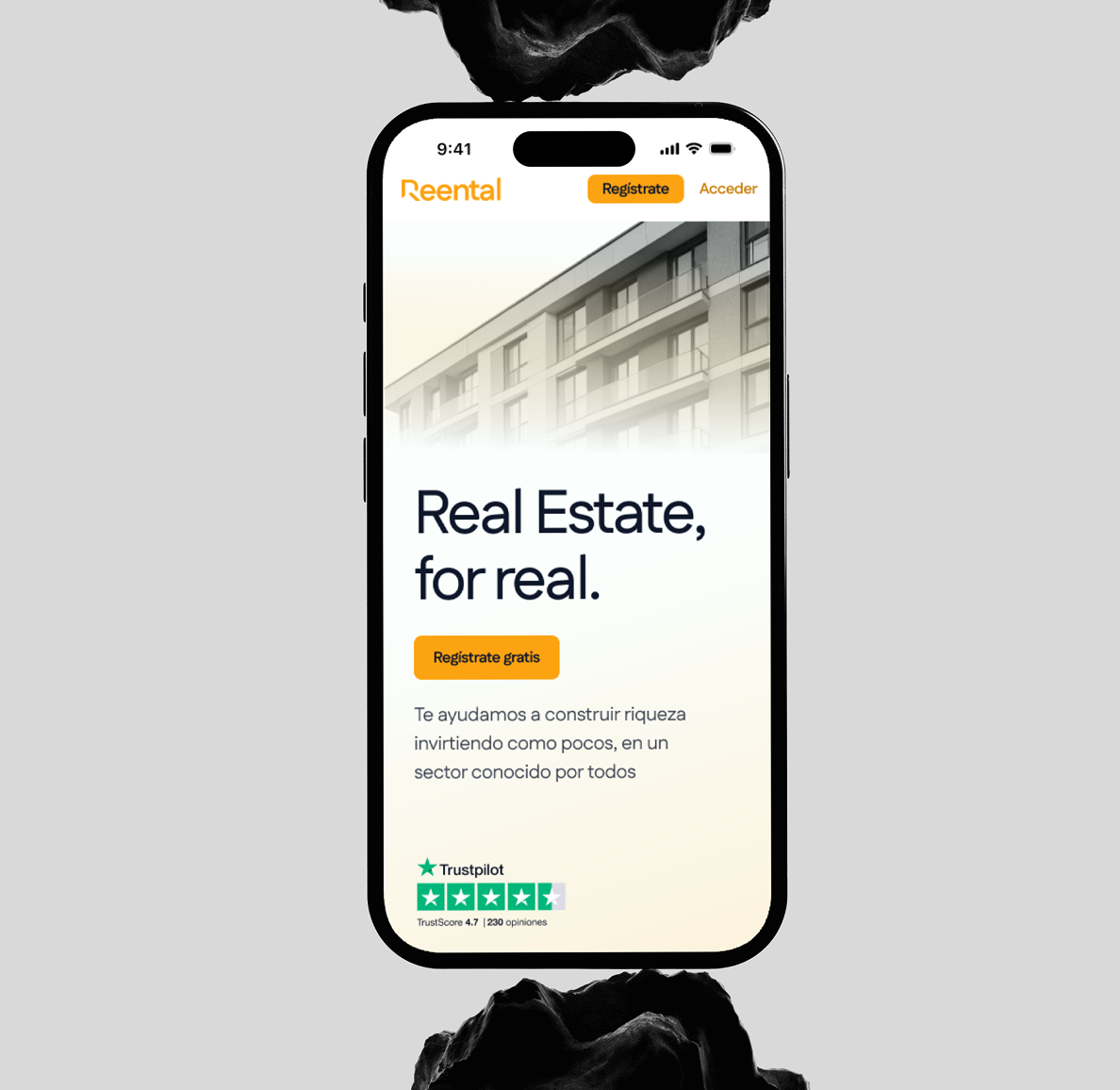Can you imagine combining the stability of the real estate market with the innovation of decentralized finance (DeFi)? At Reental, we are making this vision a reality. We have reached a significant milestone by moving forward with the integration process with AAVE, a leading DeFi platform, to launch our own collateral market.
Reental has submitted a proposal to implement a “Collateralization” version with AAVE V3 for our real estate tokens on the Polygon network. This alliance not only opens new doors for investors in the Reental ecosystem, but it also democratizes access to advanced financial opportunities.
Approval of the proposal
With the approval of the first step called “TEMP CHECK”, an initial survey where AAVE tests the proposal with its community, Reental proposes the implementation of our warranty market. The AAVE community confirms with 99.99% of votes in favor the proposal to add Reental RWA as collateral in its v3. We are ready to take the tokenization of real estate assets to a new level.
.png)
What does that mean for me with a Reental inverter? Keep reading to explore all the details.
What is Aave and why is it important?
AAVE, is a decentralized finance platform that allows users to lend and borrow cryptocurrency without traditional intermediaries, using blockchain technology to ensure secure and transparent transactions.
AAVE was founded in 2017 under the name of ETHLend, raising $16.2 million in its Initial Coin Offering (ICO). In 2018, it changed its name to AAVE, and its official platform launched on the Ethereum mainnet in January 2020. Since then, AAVE has expanded to multiple blockchain networks, such as Polygon, Avalanche, and Arbitrum, solidifying its position in the DeFi space.
Nowadays it is a platform that stands out in the world of decentralized finance. The platform has its own token, called AAVE, which plays a key role in its ecosystem and users can operate directly from their digital wallets, such as metamask, without going through centralized entities.
To do this, AAVE has more than 40 different cryptocurrency liquidity pools, each with interest rates that fluctuate according to supply and demand
How AAVE and its decentralized loans work
Unlike the traditional financial system, where banks act as intermediaries, in AAVE, capital comes directly from other users. These users deposit cryptocurrency in liquidity pools managed by smart contracts that manage the loans and the interest generated.
The interest rate depends on how many people want to lend or borrow each cryptocurrency. If demand is high, interest increases and vice versa.
Apply for Loans in AAVE
As we said before, to get a loan in AAVE, you need to offer collateral in cryptocurrency. This ensures that if you don't repay your loan, AAVE can recover the lost value.
- Loan Process:
- Collateral deposit: The user deposits cryptocurrency as collateral.
- Loan Choice: You choose the amount and type of cryptocurrency to borrow.
- Maximum quantity to order: It depends on the value of the collateral provided. For example, with 100 USD in ETH, you can borrow up to 82.5 USD.
- Collateral deposit: The user deposits cryptocurrency as collateral.
Something very important to consider here is the liquidation risk, that is, if the value of your collateral decreases significantly, AAVE will sell it to cover the loan, so it is advisable to borrow less than the total value of the collateral to avoid liquidation.
How is this going to help the Reental community?
With the initiative approved by AAVE, Reental you will be able to position yourself strategically by implementing your real estate tokens on AAVE's V3 platform, meaning that it will be a perfect bridge between the traditional real estate market and the world of decentralized finance.
This breakthrough with AAVE brings with it several specific benefits that will improve the experience of our users:
- Access to decentralized credit: Users will be able to obtain collateralized loans in a simple and secure way, using their tokenized assets as collateral.
- Increased liquidity: Reental tokens, when accepted in AAVE, will have a wider market, benefiting from the high liquidity that is deposited in this protocol, which as of today, is +10B $ of TVL.
- New ways to generate income: Users will be able to use their tokens as collateral for loans, thus expanding investment opportunities.
- Attractive to more investors: It facilitates the participation of both large investors and those with small amounts.

What's next now? Next steps
As we have seen, we have successfully passed the “TEMP CHECK” and the proposal moves to the next stage, ARFC (Request for Community Feedback). At this stage, the proposal is published so that the community can review it and provide feedback before the final vote.
The last step is to pass the AIP (AAVE Improvement Proposal). This is the vote finale in which AAVE token holders approve or reject the integration.
If each of the above-mentioned steps were approved, the project would be implemented in the loan protocol, with all the benefits mentioned above.
We are getting closer to reaching this scenario and this makes us believe more and more in our position in the real world asset market (RWA).
Examples such as BlackRock show the potential of tokenization, but they continue to serve mainly institutional clients. Reental takes a more ambitious approach: it aims to open the doors to any user to the merger of DeFi and RWA and to provide them with the tools to regain financial freedom and decision-making power.
We invite you to join our Reental community and explore the exciting investment opportunities we offer.
Start your path to financial freedom with Reental today!











.png)

.png)


